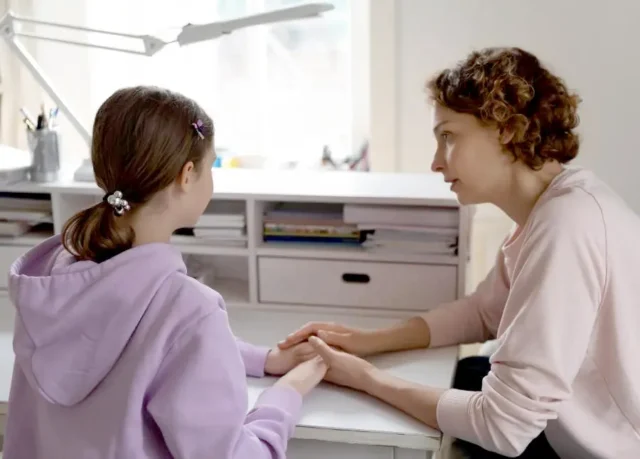
Dialectical Behavior Therapy (DBT) has been making waves in the field of mental health in recent years, particularly when it comes to children and adolescents. Teen DBT, in particular, has proven to be a game-changer for children in California who struggle with emotional dysregulation, self-harm, suicidal thoughts, and other behavioral issues. Keep reading to learn more about Dialectical Behavior Therapy. It is a game-changer for your kids, whether you live in the Golden State, whether you live here or will travel to Cali for treatment.
DBT is Evidence-Based

DBT was originally developed by psychologist Dr. Marsha Linehan to treat individuals with borderline personality disorder (BPD). Since then, it has been adapted to treat a wide range of mental health issues, including depression, anxiety, bipolar disorder, and substance abuse. DBT is an evidence-based therapy, which means that it has been rigorously researched and shown to be effective in numerous clinical trials. This means that children who participate in DBT can be confident that they are receiving treatment that has been proven to work.
DBT Teaches Practical Skills
One of the unique features of DBT is that it is a skills-based therapy. Children who participate in DBT learn practical skills that they can use in their everyday lives to manage their emotions, communicate effectively, and cope with stress. These skills include mindfulness, distress tolerance, emotion regulation, and interpersonal effectiveness. By learning these skills, children can feel empowered to take control of their mental health and make positive changes in their lives.
DBT is Tailored to Your Teen Individually

DBT is not a one-size-fits-all therapy. Instead, it is tailored to the individual needs of each child. This means that children receive personalized treatment that addresses their specific mental health issues and concerns. The therapist and child work together to identify the child’s goals and develop a treatment plan that is customized to meet those goals.
DBT is Collaborative
DBT is a collaborative therapy. This means that the therapist and child work together as a team to achieve the child’s goals. The therapist provides guidance and support, but the child is an active participant in their own treatment. This collaborative approach helps children feel empowered and engaged in their own mental health care.
DBT is Effective for Self-Harm and Suicidal Behaviors

Self-harm and suicidal behavior are serious concerns for many children and adolescents. DBT has been shown to be particularly effective in treating these issues. In fact, DBT was specifically developed to treat self-harm and suicidal behavior. Children who participate in DBT learn skills to manage their emotions and cope with stress in a healthy way, which can reduce the likelihood of engaging in self-harm or suicidal behavior.
DBT Has Long Lasting Effects
DBT is not a quick fix. Instead, it is a therapy that teaches children skills that they can use for the rest of their lives. Research has shown that the benefits of DBT can last long after treatment ends. Children who participate in DBT can continue to use the skills they learned in therapy to manage their emotions and cope with stress in a healthy way.
DBT Can Improve Your Quality of Life

Finally, DBT can improve overall quality of life for children who participate in the therapy. By learning skills to manage their emotions and cope with stress, children can feel more confident, empowered, and in control of their mental health. This can lead to improvements in relationships, school performance, and overall well-being.
DBT is a game-changer for children in California who struggle with emotional dysregulation, self-harm, suicidal thoughts, and other behavioral issues and a type of therapy that can offer hope and support to teens and their families. It’s important to note that DBT is not a replacement for other forms of mental health treatment, such as medication or traditional talk therapy. Instead, it can be used in conjunction with other forms of treatment to provide a comprehensive approach to mental health care.
If you or a loved one is considering DBT for the treatment of a mental health issue, it’s important to find a therapist who is trained in this specific type of therapy. Look for a therapist who is licensed, experienced, and has a track record of success in treating children and adolescents. Overall, teen DBT is a powerful tool for children in California who are struggling with emotional dysregulation, self-harm, suicidal thoughts, and other behavioral issues. By teaching practical skills, providing personalized treatment, and empowering children to take control of their mental health, DBT has the potential to change lives and improve overall well-being.









